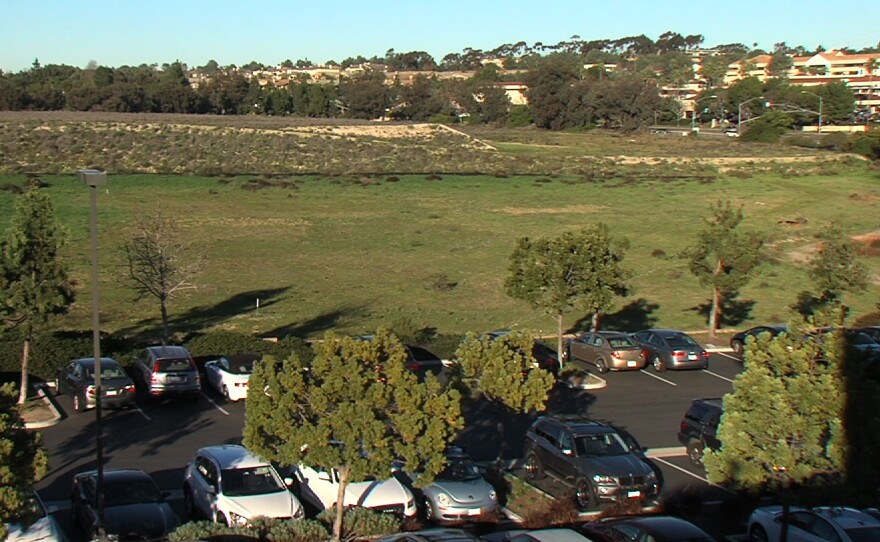A downsized One Paseo project, the Carmel Valley development that was stalled by a signature-gathering campaign last year, was approved on Monday by the San Diego City Council.
The mixed-use development will go on an empty 23.6-acre lot south of Del Mar Heights Road, between El Camino Real and High Bluff Drive.
Developer Kilroy Realty said the new design will attract nearly half the daily vehicle trips of the original plan, increase setbacks from main roads and improve landscaping. The plan incorporates 608 housing units, 280,000 square feet of office space and 96,000 square feet of retail.
The City Council approved the original, much larger project last year, but it was overturned after opponents collected 60,000 petition signatures. Council members subsequently urged Kilroy and opponents to reach a compromise.
Company officials detailed numerous workshops and other public outreach efforts to the community, leading to the updated design.
While some speakers said the project remains too dense and will worsen already congested traffic, numerous former opponents stepped up to express support of the new version of One Paseo.
"It's great to see the two sides coming together and working out an agreement, and coming to terms of a settlement that had been worked out earlier," said Councilwoman Lorie Zapf. "When you see a lot of the former foes here now in support and praising the community outreach efforts, it's a huge difference from (prior) meetings that we had here."
Among the new backers was Orange County-based Donahue Schriber, the owner of Del Mar Highlands Town Center across the street from the empty lot. The company had helped fund the opposition to the old plans.
Ken Farinsky, a community leader on the Carmel Valley Planning Board and the opposition group What Price Main Street fought the project last year. He told the City Council Monday that he supports the revised plan.
“Kilroy did work with the community — the result was a compromise that in my view was pretty good — not perfect but reasonable. Traffic was way down and it’s no longer a walled compound," Farinsky said. “I believe it won’t look out of place when viewed from nearby. This is a reasonable compromise that addresses the needs of the city to provide more jobs and more housing, while fulfilling the community desire for more shopping and dining opportunities."
Councilman Todd Gloria said the new plan was born by "unfortunate circumstance" but the result was a model other developers can follow. Future growth is going to require more housing projects, particularly in existing urban areas, he said.
The office buildings in the new One Paseo plan will be located on the lowest section of the lot and limited to six and four stories in height, according to Kilroy. The tallest building in the original plan was nine stories.
The new plans, approved on an 8-1 vote, also call for a three-story parking structure and a central gathering space for community activities.
Councilwoman Sherri Lightner, who represents Carmel Valley, said the project remains too big and doesn't include enough affordable housing. She said she received numerous emails from constituents opposed to the development who didn't come to the meeting because they believed the outcome was "predetermined."





